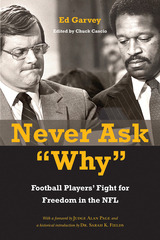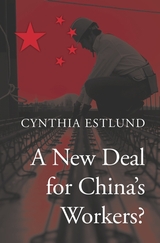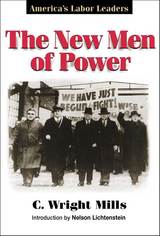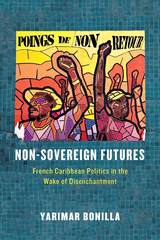7 start with N start with N


This pathbreaking study traces the rise--and subsequent fall--of the United Packinghouse Workers of America (UPWA). Roger Horowitz looks at local leaders and meatpacking workers in Chicago, Kansas City, Sioux City, and Austin, Minnesota, closely examining the unionizing of the workplace and the prominent role of black workers and women in UPWA.
Horowitz shows how three major firms in U.S. meat production and distribution became dominant by virtually eliminating union power. The union's decline, he argues, reflected massive pressure by capital for lower labor costs and greater control over the work process. In the end, the victorious firms were those that had been most successful at increasing the rate of exploitation of their workers, who now labor in conditions as bad as those of a century ago.

When pro football players formed a union to stand up against the NFL for their own interests, they chose lawyer Ed Garvey as their Executive Director. The NFL Players Association (NFLPA), would take on the NFL over player contracts, collective bargaining agreements, and antitrust suits. It lobbied for players’ free agency, contract rights, and impartial arbitration of disciplinary disputes. Garvey navigated strikes, lockouts, scabs, stooges, lies, as well as the sports media complex—to maintain players’ dignity. According to the league, the players were to take what they were given and “never ask why.”
In Never Ask “Why,” journalist Chuck Cascio presents the late Garvey’s rich account of the early years of the NFLPA, taking readers among the players as they held the league accountable to play fair. Learning from their mistakes, the NFLPA would succeed in curbing commissioner Pete Rozelle’s disciplinary power and striking down the Rozelle Rule’s absolute control over free agency.
Garvey tells the intimate stories of how pro football players, rivals on the field, rallied together to stand up for themselves. He worked tirelessly to change a system that exploited players and even controlled the media. In the end, Garvey shows how the NFLPA transformed the state of pro sports leagues today and how, even still, they work to keep down the players on whose backs they profit.

China’s labor landscape is changing, and it is transforming the global economy in ways that we cannot afford to ignore. Once-silent workers have found their voice, organizing momentous protests, such as the 2010 Honda strikes, and demanding a better deal. China’s leaders have responded not only with repression but with reforms. Are China’s workers on the verge of a breakthrough in industrial relations and labor law reminiscent of the American New Deal?
In A New Deal for China’s Workers? Cynthia Estlund views this changing landscape through the comparative lens of America’s twentieth-century experience with industrial unrest. China’s leaders hope to replicate the widely shared prosperity, political legitimacy, and stability that flowed from America’s New Deal, but they are irrevocably opposed to the independent trade unions and mass mobilization that were central to bringing it about. Estlund argues that the specter of an independent labor movement, seen as an existential threat to China’s one-party regime, is both driving and constraining every facet of its response to restless workers.
China’s leaders draw on an increasingly sophisticated toolkit in their effort to contain worker activism. The result is a surprising mix of repression and concession, confrontation and cooptation, flaws and functionality, rigidity and pragmatism. If China’s laborers achieve a New Deal, it will be a New Deal with Chinese characteristics, very unlike what workers in the West achieved in the last century. Estlund’s sharp observations and crisp comparative analysis make China’s labor unrest and reform legible to Western readers.

It is a powerful story: the relationship between the 1960s New Left and organized labor was summed up by hardhats confronting students and others over US involvement in Vietnam. But the real story goes beyond the "Love It or Leave It" signs and melees involving blue-collar types attacking protesters.
Peter B. Levy challenges these images by exploring the complex relationship between the two groups. Early in the 1960s, the New Left and labor had cooperated to fight for civil rights and anti-poverty programs. But diverging opinions on the Vietnam War created a schism that divided these one-time allies. Levy shows how the war, combined with the emergence of the black power movement and the blossoming of the counterculture, drove a permanent wedge between the two sides and produced the polarization that remains to this day.

thought labor leaders a new strategic elite and the unions a set of vanguard organizations that were crucial to "stopping the main drift towards war and slump." Today, as the unions once again seek to play a decisive role in American life, Mills' remarkable probe into the structure and ideology of mid-twentieth-century trade unionism remains essential reading. A new introduction by historian Nelson Lichtenstein offers insight into the Millsian political world at the time he wrote The New Men of Power.

Through a deep ethnography of Guadeloupean labor activism, Bonilla examines how Caribbean political actors navigate the conflicting norms and desires produced by the modernist project of postcolonial sovereignty. Exploring the political and historical imaginaries of activist communities, she examines their attempts to forge new visions for the future by reconfiguring narratives of the past, especially the histories of colonialism and slavery. Drawing from nearly a decade of ethnographic research, she shows that political participation—even in failed movements—has social impacts beyond simple material or economic gains. Ultimately, she uses the cases of Guadeloupe and the Caribbean at large to offer a more sophisticated conception of the possibilities of sovereignty in the postcolonial era.
READERS
Browse our collection.
PUBLISHERS
See BiblioVault's publisher services.
STUDENT SERVICES
Files for college accessibility offices.
UChicago Accessibility Resources
home | accessibility | search | about | contact us
BiblioVault ® 2001 - 2024
The University of Chicago Press









